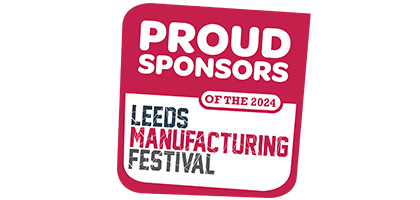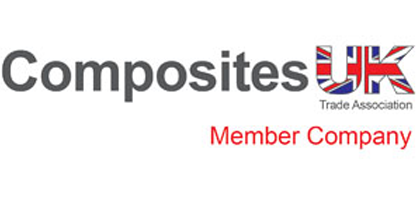The automotive industry is undergoing a rapid transformation, driven by the need for more efficient, lightweight, and sustainable vehicles.
As a result, the use of Glass Reinforced Plastic (GRP) in automotive manufacturing has grown significantly. In 2023, the global automotive composites market was valued at over $7 billion and is expected to grow at a CAGR of 8.3% from 2023 to 2032, with GRP playing a major role in this expansion.
The Rise of GRP in Automotive Manufacturing
GRP has emerged as a preferred material for several reasons: it's lightweight, highly durable, and offers excellent design flexibility. The shift towards electric vehicles (EVs) and the need for fuel-efficient vehicles have pushed manufacturers to seek alternatives to traditional metals like steel and aluminium. GRP offers significant advantages in reducing vehicle weight, which is crucial in meeting global fuel efficiency standards and reducing emissions.
According to a recent Allied Market Research report, the use of composites like GRP in automotive structural components is projected to increase by over 8% annually, driven by the material’s superior strength-to-weight ratio and corrosion resistance.
“Multilayer composite laminates absorb more energy than conventional single-layer steel, enabling high-end automotive engineers to reduce vehicle weight by as much as 60% while enhancing crash safety” - Department of Mechanical Engineering
Applications of GRP in Automotive Design
GRP’s versatility means it can be used in various parts of a vehicle, offering manufacturers both functional and aesthetic benefits. Some common areas where bespoke GRP components are used include:
- Exterior body panels
- Undercarriage components
- Structural elements
- Interior trims
By using GRP in these areas, automakers can reduce vehicle weight by up to 50% compared to traditional materials. This weight reduction is critical in improving fuel efficiency and enhancing the range of electric vehicles. For instance, cutting 100 kilograms from a vehicle can improve fuel efficiency by up to 5-7%. Additionally, using GRP in exterior parts provides enhanced resistance to dents and corrosion, helping vehicles maintain their appearance and structural integrity over time.
GRP: The Future of Lightweight, Durable Automotive Parts
The advantages of GRP in automotive manufacturing go beyond weight reduction. GRP is also resistant to corrosion, which is a critical feature for vehicles that are exposed to harsh environments. For example, underbody components made from GRP are less likely to rust, extending their lifespan and reducing the need for frequent replacements.
Moreover, GRP parts are highly impact-resistant, meaning they are less likely to dent or crack upon impact, offering greater durability and safety for consumers. According to industry research, GRP parts can last up to 3 times longer than their metal counterparts, providing significant savings in maintenance and repair costs.
Automotive Sectors - GRP in Electrical Vehicle Markets
As the automotive sector pivots towards electric vehicles, the demand for lightweight materials like GRP will continue to surge. Battery efficiency and range are critical for EVs, and every kilogram saved in vehicle weight extends the distance an EV can travel on a single charge. GRP’s role in enabling automakers to create lighter, more efficient vehicles has made it a go-to material for EV design and production.
At MPM, we are committed to helping our clients in the automotive industry stay ahead of these trends by delivering high-quality, bespoke GRP components that meet their exact specifications. With the ability to customise each part and optimise production processes, MPM ensures that manufacturers can focus on innovation while we handle the composites side of production. See a few of our automotive case studies:
- Bespoke GRP (Fiberglass) parts for refrigerated vehicles
- Pattern, mould and full production of an elevating campervan roof
- Clear view windows – low-height passenger door windows
- Patterns and moulds for wheelchair-accessible minibuses
GRP in Motorhomes and Campervan Markets
The demand for bespoke GRP components is not limited to traditional automotive vehicles—it’s also gaining significant traction in the motorhome and campervan sectors. As these recreational vehicles continue to grow in popularity, manufacturers are looking for materials that offer a balance of lightweight construction, durability, and customisability—and GRP fits the bill perfectly.
GRP components in the leisure vehicle sector can last longer than traditional metal parts due to their corrosion resistance. This makes fibreglass parts highly desirable for vehicles exposed to harsh outdoor conditions, such as saltwater, rain, and UV radiation.
With the global automotive industry rapidly evolving, bespoke GRP manufacturing is crucial to meeting the demands of lightweight design, fuel efficiency, and sustainability. MPM Group is proud to support this transformation by providing tailored solutions that enhance vehicle performance, reduce costs, and meet the industry’s growing need for durable, customisable components.
To learn more about how MPM can assist with your GRP manufacturing needs, view our capabilities or contact us today.








